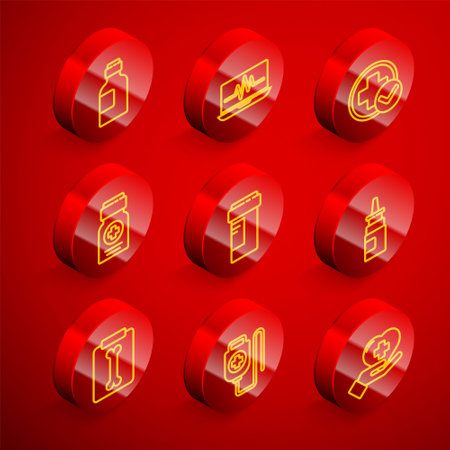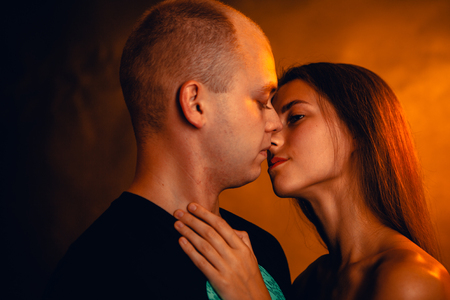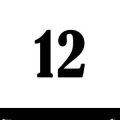1. Introduction: Zodiac Signs and LGBTQ+ Relationships
When it comes to love and relationships, many people turn to Western astrology for insights into compatibility. Traditionally, zodiac compatibility has focused on heterosexual couples, but times have changed. Today, more and more people are exploring how astrological connections work within the LGBTQ+ community. In this article series, we’ll dive into how Western astrology interprets love and compatibility in a way that is inclusive of all sexual orientations and gender identities.
Understanding Zodiac Compatibility
Western astrology is built around the twelve zodiac signs, each representing different personality traits and emotional needs. When looking at relationships, astrologers often compare sun signs, moon signs, rising signs, and Venus placements to understand how two people might connect romantically or emotionally. Here’s a quick look at what these placements mean:
| Astrological Placement | What It Represents in Relationships |
|---|---|
| Sun Sign | Core personality, basic identity |
| Moon Sign | Emotional needs, inner feelings |
| Rising Sign | First impressions, outward style |
| Venus Sign | Love language, attraction style |
LGBTQ+ Inclusion in Astrology
Astrology doesn’t put limits on love. No matter your orientation or gender identity, your birth chart can reveal unique strengths and challenges in your relationships. Modern astrologers recognize that everyone deserves personalized guidance—whether you’re gay, lesbian, bisexual, transgender, queer, or anywhere else on the spectrum. The focus is on emotional connection, communication styles, values, and shared experiences rather than traditional gender roles.
A Diverse Approach to Love
LGBTQ+ couples bring their own perspectives to partnerships. Astrology offers a framework to celebrate those differences while highlighting what draws two people together. For example:
| Zodiac Element | Common Traits in Relationships | LGBTQ+ Relationship Example |
|---|---|---|
| Fire (Aries, Leo, Sagittarius) | Passionate, bold, adventurous | A couple who loves spontaneous road trips and creative projects together. |
| Earth (Taurus, Virgo, Capricorn) | Loyalty, stability, practicality | A partnership built on trust and shared routines—maybe co-parenting pets or plants. |
| Air (Gemini, Libra, Aquarius) | Communication-driven, open-minded | A pair who connects through deep conversations and social activism. |
| Water (Cancer, Scorpio, Pisces) | Emotional depth, empathy | A relationship where both partners feel seen and supported emotionally. |
A Modern Take on Compatibility Charts
No two relationships are exactly alike—and that’s something worth celebrating! By focusing on inclusion and diversity within the LGBTQ+ community, modern astrology encourages everyone to explore what feels authentic and meaningful in their connections. Whether you’re seeking friendship or romance, Western astrology has space for all stories under the stars.
2. Breaking Down Sun Signs: Personality and Communication Styles
When it comes to LGBTQ+ relationships, understanding each other’s sun signs can offer valuable insights into how we connect, communicate, and express ourselves. In Western astrology, your sun sign represents the core of who you are—your basic personality traits, motivations, and even how you interact with partners. For many in the U.S., checking horoscopes is as common as grabbing a morning coffee or chatting about last night’s reality TV. Let’s take a closer look at how each sun sign tends to shape personality and communication styles, especially within the diverse world of LGBTQ+ relationships.
How Sun Signs Influence Personality
Each sun sign brings its own unique flavor to a relationship. Some signs are bold and expressive (think Aries or Leo), while others might be more laid-back or sensitive (like Pisces or Cancer). This isn’t just about stereotypes—many people in America use zodiac signs as fun icebreakers on dating apps or as ways to bond over shared quirks at Pride events.
| Sun Sign | Personality Traits | Common Communication Style | Popular U.S. Reference |
|---|---|---|---|
| Aries | Energetic, direct, adventurous | Straightforward, sometimes impulsive | “Shoot your shot” mentality seen on dating apps like Tinder |
| Taurus | Loyal, patient, practical | Calm, grounded conversations | Known for their love of comfort food and Netflix nights in |
| Gemini | Curious, adaptable, witty | Chatty, playful banter | The friend who texts memes all day long |
| Cancer | Caring, intuitive, nurturing | Emotionally expressive, empathetic listener | Your go-to for heart-to-hearts at queer support groups |
| Leo | Confident, generous, dramatic | Loves attention and big declarations of affection | The star performer at drag brunches and open mics |
| Virgo | Analytical, reliable, thoughtful | Careful with words, detail-oriented feedback | The planner of group trips to Pride parades |
| Libra | Charming, fair-minded, social | Diplomatic conversations; avoids conflict when possible | The mediator during roommate disputes in shared queer housing |
| Scorpio | Passionate, private, intense | Straight to the point but values deep talks late at night | The one everyone trusts with secrets at house parties |
| Sagittarius | Optimistic, freedom-loving, honest | Direct yet humorous; loves sharing stories from travels or activism events | The road trip buddy for cross-country Pride festivals |
| Capricorn | Ambitious, disciplined, dependable | No-nonsense communication; practical advice-giver | The career-focused friend balancing work and advocacy |
| Aquarius | Innovative, independent, humanitarian | Loves big-picture debates and quirky conversations | The activist leading local queer community initiatives |
| Pisces | Sensitive, creative, compassionate | Tends toward poetic messages; deeply empathetic | The artist creating murals for LGBTQ+ spaces |
Navigating Communication in LGBTQ+ Relationships Using Sun Signs
No matter your identity or pronouns, knowing your partner’s sun sign can help you understand why they might crave more emotional check-ins (Cancer), prefer playful teasing (Gemini), or need space to process feelings (Aquarius). In American LGBTQ+ circles—whether online forums or local meetup groups—people often turn to astrology as a tool for self-reflection and building stronger connections.
A Few Tips for Sun Sign-Inspired Communication:
- If your partner is a Leo: Don’t be afraid of grand gestures or giving compliments—they thrive on positive attention.
- If your partner is a Virgo: Show appreciation for the small things; they notice details others might miss.
- If your partner is a Sagittarius: Be open to new experiences together—they love adventure and learning.
This playful approach to sun signs can help LGBTQ+ couples in the U.S. celebrate differences while finding new ways to relate. Whether you’re swiping right based on someone’s astrological profile or comparing charts over brunch in Brooklyn or San Francisco, the stars can offer a starting point for deeper understanding—and maybe even spark some unexpected chemistry.

3. Beyond Binaries: Astrology for All Genders and Orientations
Western astrology has long used archetypes like the masculine Sun and the feminine Moon, but these symbols are evolving to reflect today’s diverse world. Instead of sticking to binary gender roles, modern astrologers are reinterpreting the zodiac so everyone—regardless of gender identity or sexual orientation—can find meaning in their birth chart and relationship compatibility.
How Astrology Is Moving Past Gendered Archetypes
Traditionally, signs and planets were linked to male or female traits. For example, Mars was seen as aggressive and “male,” while Venus represented nurturing “female” energy. But now, many in the LGBTQ+ community—and their allies—view these energies as accessible to all people. Your Sun sign’s leadership qualities or your Venus sign’s love language aren’t tied to your gender; they’re part of your unique personality.
Astrological Symbols Without Gender Limits
| Traditional Association | Modern, Inclusive Interpretation |
|---|---|
| Sun (Masculine) | Self-expression, vitality for everyone |
| Moon (Feminine) | Emotions, intuition for all genders |
| Mars (Male energy) | Drive, passion regardless of identity |
| Venus (Female energy) | Love, attraction for every orientation |
LGBTQ+ Relationships: Zodiac Compatibility Goes Beyond Binaries
Zodiac compatibility is about how two people’s energies blend—not about traditional gender roles. For LGBTQ+ couples, this means you can explore astrological connections that honor your unique partnership without feeling boxed in by old stereotypes. Whether you’re a Leo dating a Cancer, or an Aquarius in love with a Scorpio, it’s about how your personalities complement each other—not who is “supposed” to play a certain role.
Key Takeaway: Astrology Is for Everyone
The beauty of Western astrology today is its flexibility and inclusivity. No matter your gender identity or who you love, the zodiac offers ways to better understand yourself and connect more deeply with partners. As society grows more open-minded, so too does astrology—making space for every kind of love story.
4. Synastry: The Art of Astrological Matchmaking
What Is Synastry?
Synastry is a branch of astrology that compares two birth charts to see how well people connect on different levels. Think of it as an astrological “relationship map” that highlights strengths, challenges, and areas for growth between partners. For LGBTQ+ individuals, synastry can provide unique insights into relationship dynamics without assuming traditional gender roles or heteronormative patterns.
How Synastry Charts Work
A synastry chart overlays your natal (birth) chart with your partner’s chart to look at the interaction between planets. Astrologers focus on aspects—like conjunctions, squares, and trines—between key planets such as the Sun, Moon, Venus, and Mars. These aspects show how two people might communicate, express love, handle conflict, and share values.
Common Planetary Aspects in Synastry
| Planetary Aspect | What It Means for Relationships |
|---|---|
| Sun-Moon Connection | Emotional understanding and shared life direction |
| Venus-Mars Link | Chemistry, attraction, and romantic spark |
| Mercury-Mercury Aspect | Communication style and mental compatibility |
| Saturn Contact | Commitment, stability, and possible challenges |
| Uranus Aspect | Excitement, unpredictability, or need for freedom |
Real-World LGBTQ+ Relationship Scenarios
Case 1: Jamie and Alex are both Aquarius Suns with Venus in Pisces. Their synastry chart shows strong Sun-Sun friendship energy but also a dreamy Venus-Venus connection. This means they can easily support each others individuality while sharing deep emotional moments—great for couples who value both friendship and romance.
Case 2: Sam (Leo) and Taylor (Scorpio) have a Mars square Venus aspect. While this brings lots of passion and excitement, it can sometimes lead to misunderstandings about how they show affection. Recognizing this aspect helps them talk openly about their needs rather than expecting each other to “just know.”
LGBTQ+ Inclusive Approach to Synastry
One of the best things about synastry is its flexibility—it doesn’t assume traditional roles or make judgments based on gender. Whether you’re in a same-sex partnership or a non-binary relationship structure, synastry adapts by focusing on energy dynamics instead of outdated stereotypes. This allows LGBTQ+ partners to see where they naturally align and where they might want to communicate more intentionally.
Tips for Using Synastry in Modern Relationships
- Use synastry as a conversation starter: Explore your similarities and differences together.
- Avoid using astrology as a fixed rulebook: Charts reveal potentials—not destiny.
- Remember every couple is unique: Synastry highlights your partnership’s special strengths.
- Pursue professional guidance if needed: An LGBTQ+-affirming astrologer can help you interpret complex aspects.
5. Common Compatibility Myths in LGBTQ+ Astrology
When it comes to zodiac compatibility, there are plenty of myths floating around—especially within the LGBTQ+ community. Western astrology has long been used to explore love and relationships, but many traditional ideas about “perfect matches” don’t always fit queer experiences. Let’s debunk some popular misconceptions and look at what really matters for compatibility in LGBTQ+ relationships.
Myth #1: Sun Signs Are Everything
One of the most common misunderstandings is that your sun sign alone determines who you’re compatible with. In reality, astrology is much more complex. Factors like moon signs, rising signs, Venus and Mars placements all play important roles—sometimes even more so than sun signs—when it comes to attraction and emotional connection.
Key Astrological Factors Influencing Compatibility
| Astrological Element | Role in Compatibility |
|---|---|
| Sun Sign | Core personality traits |
| Moon Sign | Emotional needs & responses |
| Rising Sign (Ascendant) | First impressions & outward behavior |
| Venus Placement | How you give/receive love, values in romance |
| Mars Placement | Passion, drive, sexual chemistry |
Myth #2: Heteronormative Pairings Apply to Everyone
Traditional astrological compatibility often assumes a male/female dynamic (like “fire signs go best with air signs”). But for LGBTQ+ folks, relationship dynamics can be much more fluid. For example, two water signs might find deep understanding together, or two fire signs might thrive on shared energy. Queer partnerships break the mold, making it essential to look beyond binary pairings.
Myth #3: Certain Signs Cant Work Together at All
You might hear that certain signs are doomed if paired up (like Cancer and Aquarius). In truth, any combination can work with mutual understanding and communication. Astrology offers insight into differences—not hard rules that dictate success or failure. Every relationship is unique, shaped by both partners’ personalities and life experiences.
LGBTQ+ Compatibility: Unique Influences to Consider
- Cultural Context: Societal acceptance and support may influence how comfortable partners feel expressing their true selves.
- Chosen Family: Support systems outside of traditional family structures can impact relationship stability.
- Personal Growth Journeys: Coming out stories and identity exploration often affect emotional needs and relationship priorities.
Takeaway: There’s No One-Size-Fits-All Formula
Zodiac compatibility in LGBTQ+ relationships is about more than matching signs—it’s about understanding each other’s unique journeys, challenges, and strengths. While astrology can provide helpful guidance, real connection grows from openness, empathy, and authentic communication.
6. Embracing Self-Discovery: Astrology as a Tool for Empowerment
Western astrology isn’t just about predicting the future or figuring out who you’re most compatible with—it’s also a powerful tool for self-discovery and personal empowerment, especially within the LGBTQ+ community. By exploring your unique birth chart, you can gain insight into your strengths, challenges, and emotional needs, helping you to better understand yourself and those around you.
How Astrology Supports LGBTQ+ Individuals
For many LGBTQ+ folks, the journey of self-acceptance can be challenging due to societal pressures or lack of representation. Western astrology offers an inclusive lens through which everyone can explore their identities without judgment. It encourages embracing every part of yourself—including the parts that may not fit traditional norms.
Ways Astrology Encourages Growth
| Astrological Element | How It Empowers | Example in Relationships |
|---|---|---|
| Sun Sign | Highlights core identity and drives confidence | Understanding your Sun sign helps you express your true self openly |
| Moon Sign | Sheds light on emotional needs and inner world | Knowing your Moon sign supports emotional honesty with partners |
| Venus & Mars Signs | Reveals love language and desire style | Helps navigate compatibility and intimacy in queer relationships |
| Mercury Sign | Improves communication styles | Makes it easier to talk through issues with loved ones authentically |
The Benefits of Self-Acceptance Through Astrology
When LGBTQ+ individuals dive into their astrological charts, they often discover new ways to accept themselves fully. This self-knowledge can:
- Boost confidence by validating unique traits and experiences.
- Create stronger boundaries by understanding personal needs.
- Foster empathy for others’ differences in relationships.
- Encourage healthier connections based on mutual respect and understanding.
Using Astrology for Healthy Relationships
A deeper knowledge of your chart—and your partner’s—can help build trust and compassion. Astrology gives language to needs and desires that might otherwise feel hard to express. For example, someone with a sensitive Cancer Moon might realize they need extra reassurance, while a partner with an adventurous Sagittarius Venus may crave more freedom. Recognizing these differences makes it easier to support each other as individuals.


